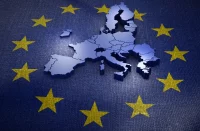A conference titled “The Politico-Military Dimension of European Security: Proposals and Perspectives” co-hosted by Russia’s and Greece’s foreign ministries was held in Athens on May 17, 2011. It focused on the interactions between Russia and Greece in the security sphere, trust-building measures, and arms control. The themes obviously being of top importance to today’s world, clarity was lacking concerning the following issues:
– What could be the objective behind the interactions – behind the Russia-NATO relations, for example – from the standpoint of the end result rather than the process?
– Does the current sluggish interaction in fact help to disguise NATO’s predatory policies spearheaded by Washington and is Russia’s residual potential being used to strengthen the US global hegemony?
– What damage can Russia’s own security suffer if Moscow overemphasizes its cooperation in the military sphere with the West?
Neither of the above came into the spotlight at the Athens Conference, and when I asked whose exactly missiles a joint Russian-European missile defense might be knocking down, the question sounded obviously rhetorical. A colleague of mine did remark that building a common missile shield should bring about the climate of trust, a point which I contested in my talk. The key ideas from the latter are outlined below.
As I see it, the most pressing security and arms control issues confronting Russia and Europe indeed revolve around the problem of trust. Trust depends on an array of factors, the main ones being:
– The cultural and civilizational otherness of the traditionally Orthodox Russia from Europe which identifies with the currently dominant Western civilization. The two worlds profess diverging values – fairness in Russia’s case and expediency in Europe’s – and rely on behavioral codes that tend to evade synchronization.
– Historically, Europe is a force hostile to Russia. The hostility even mixed into the shared triumph in World War II. Europe was undividedly against Russia during the 2008 conflict with Georgia triggered by Tbilisi’s aggression against South Ossetia and Russian peacekeepers. Arnold Toynbee wrote in his Civilization on Trial that aggression used to be the West’s only form of interacting with the outside world and that the chronicles of centuries-long struggle between the Roman Catholic and the Orthodox churches convincingly demonstrated that in all cases the Westerners were the aggressors and Russians – the victims of aggression.
– The EU security policies are predominantly shaped by the US influence. Security dialog with the EU makes a fairly hopeless pursuit given that Europe’s independence in the military sector is obviously limited and Europe’s plans have to be seemlessly aligned with the US strategy.
A mismatch between the military strategic interests of the parties to the dialog also presents a problem. The NATO military buildup is viewed with concern in Russia as are NATO’s expansion east, inclination to treat the whole world as its responsibility zone, disregard for the international law, and attempts to sideline legitimate international forums including the UN. Nor do Russians for the most part believe that Washington’s plan for a European missile shield must not be seen as a threat.
The dissonances surfaced in the context of the recent UN Security Council’s resolutions on Libya. The way things are perceived in Russia is that NATO first launched a massive media campaign against Libya in order to have Resolution 1973 stamped by the UN Security Council, and then unilaterally overstepped its limits. Russians were outraged by the killing of Gadhafi’s son and grandchildren, a crime quite comparable in character to those fascists perpetrated during World War II.
NATO’s interventions in sovereign countries increasingly lead Russia to regard the alliance as a threat. The population of Russia includes around 20 million Muslims who are angered by the NATO aggression in North Africa as Russia’s Orthodox people used to be by that against Yugoslavia in 1999. The Russian business, by the way, suffered losses adding up to billions of dollars due to the outbreak of war in Libya.
The inescapable conclusion is that trust between Russia and Europe is anything but growing. The West is not practicing what it preaches, and it is no secret to Moscow. At the moment the majority of Russia’s ethnic Russians (80% of the country’s entire population) are critical of Russia’s cooperation with NATO and hold that it erodes Russia’s own security, and the Russian administration has to take the public atmosphere into account in the decision-making process.
The inefficiency of various international and regional bodies also factors into the process of Russia-Europe trust-building. The notion that the UN Security Council is a totally useless institution – if not a criminal group – is becoming commonplace in the expert community. The UN assisted in the demolition of the Yugoslavian statehood, the devastation of Iraq, the unleashing of the war in Afghanistan which exposed Russia to a drug-trafficking tide, and recently – in making Libya a target. The OSCE steps supposed to create a European security architecture are producing no visible results. NATO, which is an instrument of war, not peace, overshadows its partners in the NATO-UN-OSCE trio. Russian policy makers are not sure whom to talk to – to the EU, to NATO, or to Washington – when it comes to the European security.
The early XXI century is an epoch of major geopolitical shifts. Individual countries and collective international institutions are shedding their former eminence, giving way to global civilizations. Samuel Huntington wrote in his controversial Clash of Civilizations: “A civilization-based world order is emerging… Avoidance of a global war of civilizations depends on world leaders accepting and cooperating to maintain the multicivilizational character of global politics”.
The West is being challenged by Oriental civilizations, and the picture cannot be ignored. The US and transnational oligarchic groups now struggling to retain positions cannot independently put a barrier in the way of China, the Muslim world, and Latin America and are drawing Europe and Russia into the conflict. Their goal is not harmonizing the world system but beating the rising East, and the aggression against Libya is a fresh example of the policy.
What are the real options for the interaction between Russia and Europe in the security sphere? First, both should realize that Russia, in Halford Mackinder’ terms, the continent’s heartland, is the backbone of the security of the nations of Eurasia. Russia’s weakening or disintegration would send a destabilization wave of unprecedented power across Europe and the whole Eurasia, and undermine the international relations globally. Due to the very nature of the situation, Europe needs a strong Russia to prevent a replay of the Mongol invasion. Secondly, Russia and Europe should jointly spell out the agenda for a new global configuration. The imposition of the US model for a new world order on mankind would have catastrophic consequences, while China has not unveiled an original concept for the global architecture and likely has nothing to offer…
Russia and Europe could together launch an overhaul of the UN Security Council aimed at making it reflective of the world’s civilizational structure. Representatives of global civilizations could be given permanent seats in the UN Security Council, with the US (or the Anglo-Saxon civilization) and Europe being represented as separate entireties. The rebuilt UN Security Council could take the leading role in forming regional security organizations. Thirdly, a concept of collective security for the whole Eurasian space must be formulated on the basis of non-military security measures, while the OSCE should morph into a kind of a Security Council for Europe.
Common efforts would reinforce trust between Russia and Europe, dispel the atmosphere of historically entrenched hostilities, and unlock the potential for cooperation in a variety of spheres. For that, however, Russia should acquire the contours of a global civilization, a synthesis of the Orthodox Slavic culture (Russia, Ukraine, and Belarus plus the Balkans) and the Eurasian mosaic which also counts the Muslim world of Russia and the CIS. Europe, in its turn, should establish a civilization of its own culturally distinct from the US. As of today, though, neither of the two scenarios appears even minimally realistic.
Leonid Ivashov is a vice president of the Academy on Geopolitical Affairs and former Joint Chief of Staff of the Russian Armed Forces, General-Colonel (Rtd).
Source: Strategic Culture Foundation














Comments